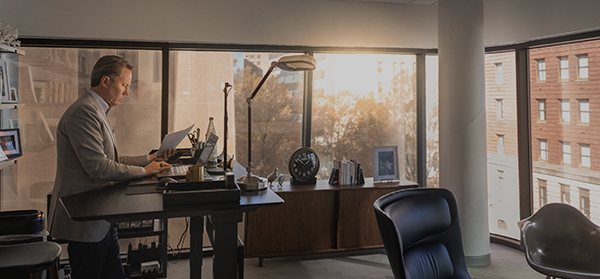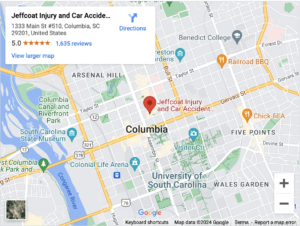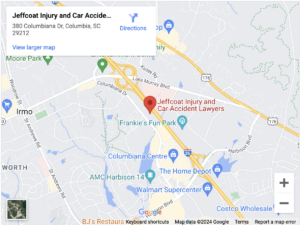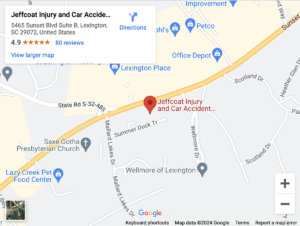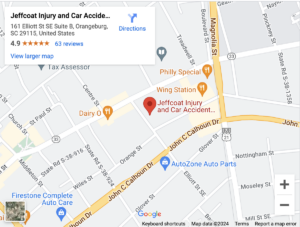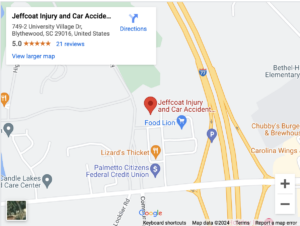Obtaining a less-than-favorable verdict in a personal injury case – for example, after being injured in a car accident – can be emotionally and financially devastating. However, if you and your attorney believe the decision reached by the trial court didn’t legally acknowledge key evidence or misapplied the law, there may be potential recourse through an appeal.
This is a complicated process, and it’s difficult to determine when an appeal is legally warranted. In these cases, it’s critical to speak with a personal injury lawyer as soon as possible to get the help you truly need and deserve.
If you are considering appealing your personal injury case decision but don’t know where to start, it’s important to understand some of the basics.
What is an Appeal?
An appeal in the context of a personal injury case is when a party that’s lost or is unsatisfied with some or all aspects of a trial court decision asks for it to be reviewed and potentially reversed by a higher court.
Grounds For Appeal in Personal Injury Cases
Grounds for an appeal in a personal injury case hinge on legal errors that may have prejudiced the trial against you.
Examples include the following:
- The court’s refusal to accept testimony from expert witnesses
- Denial of admissible evidence
- Juror misconduct or bias
- Insufficient evidence supporting the verdict
- A verdict that directly contravenes established law
Navigating an appeal is not something you should deal with alone, as there are many complex legal issues that need to be handled. If you find yourself unhappy with a verdict in your personal injury case, speak with your lawyer as soon as possible.
Common Steps to Filing an Appeal
Understanding the steps to filing an appeal is vital if you believe there was an error made in your case.
File a Notice of Appeal
The basic initial step in the appeal process requires that the plaintiff (now appellant) files a notice of appeal within 30 days following their decision from the trial court.
Once you do this, you must then secure a transcript of the original proceedings. The transcript plays a critical role as it contains the entire record of what transpired during the initial trial.
Following this, a brief containing your arguments must be filed. It outlines perceived errors made in court, alongside corresponding laws and precedents supporting the reasons for the appeal. All of this is typically done by your lawyer.
Oral Arguments
Following the submission of your brief, oral arguments may be requested by the higher court. During this hearing, your attorney details not just why you disagree with that initial ruling but also suggests what form the correction should take.
After the oral argument stage, your appeal is considered submitted to the court for a decision. If your personal injury case lacks complex legal questions and is fairly straightforward, oral arguments may not be required.
Wait For a Decision
Once your appeal has been submitted, the waiting period for a decision begins.
This wait can differ widely based on a number of factors, such as:
- Which appellate judge is reviewing your case
- The size of their current caseload
- How complex the issues were in the case
- The number of witnesses who testified in the case
- The number of documents submitted into evidence
The appeal process following a personal injury case is complex and demands patience, attention to detail, and legal expertise.
An Appeal is Not a Retrial
An appeal is a fundamentally different process compared to a trial at the lower court level. Unlike in a retrial, where evidence and witness testimony are introduced, personal injury appeals focus on examining legal aspects of the original case only. No new evidence or testimony is permitted.
Appellate judges carefully study whether relevant laws were applied correctly by previous judges and if all procedures followed adhered to established judicial protocols.
The Importance of Working With an Experienced Personal Injury Lawyer If You’re Appealing Your Case
Navigating the appellate courts in South Carolina should be done with the help of a personal injury lawyer well-versed in this area of the law. You should work with someone who is familiar specifically with the appeals process. The fact that a personal injury attorney is experienced in negotiations and trials doesn’t mean they’re the right one for an appeal.
Your lawyer’s expertise is essential for examining the lower court outcome. They’ll evaluate your potential for an appeal based on existing evidence and testimony to pinpoint areas where legal missteps may have occurred.
One of the most important things they’ll do is make sure your appeal is filed on time. If you miss the deadline, you won’t be able to fight back against the unfair verdict. If you need help, don’t hesitate to contact us to speak with one of our experienced Columbia personal injury lawyers at Jeffcoat Injury and Car Accident Lawyers. Give us a call at (803) 373-1706 to schedule a free consultation.
